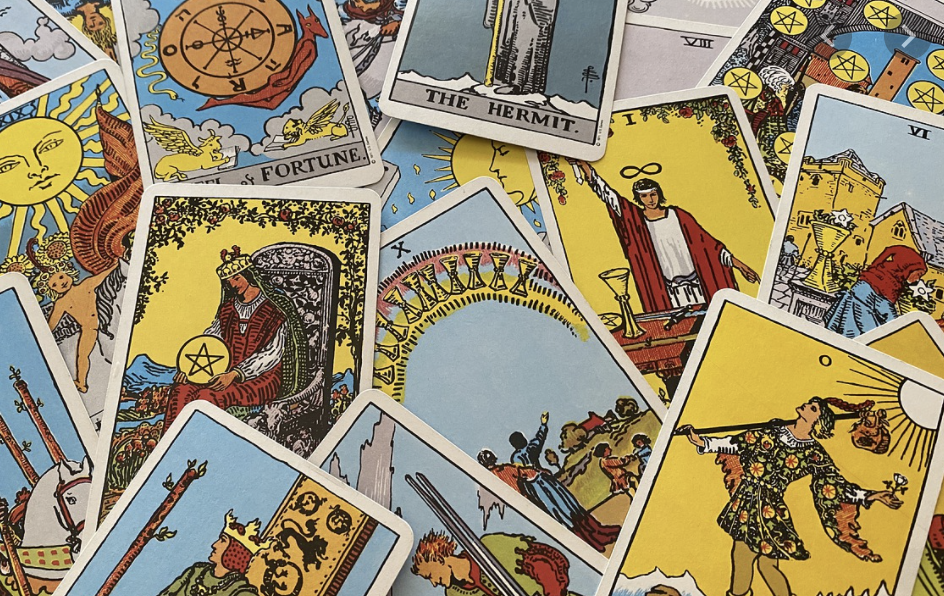Over this past pandemic summer, I was lucky enough to find solace from the excruciating Texas heat in a small herbalist shop in the heart of East Austin. Entering into this haven for the first time was a transformative experience to say the least. The walls were decorated with social justice prints made from a thin burlap-like fabric. A deep mahogany wooden bookshelf filled with an array of herbs I had never heard of before occupied the entirety of the north-facing wall. The interior of the shop felt, in one word, warm.
The gentrification and commodification of non-Western medicine and spiritualism is dangerous—all at the expense of the very people who created it.
Throughout my time in the shop, I learned to love—and perhaps more importantly, deeply respect—the intersection of herbalist practice and spirituality that the shop owners and community fostered. I slowly began to learn the names of the herbs that lined the bookshelf, names that were so foreign to me on my first day. Today, I still stumble over some names; I am nowhere close to being an expert and I have a deep respect for the years of practice it takes to master. Despite all of this, however, I was able to recognize the pitfalls of the community. In spite of the ethnic backgrounds of herbalism and spiritualism, on most days, the shop would be overrun with white liberal Austinites who came into the store expecting to purchase white sage or palo santo (even though we didn’t sell it).
One day, a woman came into the shop and began fluttering around the shelves, grazing each one with a curious sense of nonchalance and ownership. She eventually flagged down the store owner and began discussing the benefits of non-Western medicine, promoting her own artisanal ghee company. I was in awe of how blissfully unaware of her own privilege she appeared. To give a little background, ghee is a traditional class of clarified butter originating in Indian, Pakistani, and Middle Eastern cultures. It is used not only in cuisine, but also in traditional medicine and some religious rituals. Ghee is a cultural symbol of sorts. With time, however, it has turned into the newest health fad, as thousands of articles (written mainly by white people) attempting to qualify the legitimacy of ghee continue to pour out, ignoring the fact that it has been used in ayurvedic medicine for thousands of years. Ghee has been appropriated by white women who add rosemary and sage and rack up the price to $45 per half a pound, effectively gentrifying the substance and stealing business away from the brown people who created it.
A further look, however, showed me that perhaps “WitchTok” was simply another fad that showcased gentrified and commodified versions of spiritualism cut into 15-second clips.
I wouldn’t go so far as to call this incident anything more than ignorance. At the time, I found it funny, maybe even slightly endearing given her childlike pronunciation of the term. I even covertly took out my phone to sneak a quick text to my family about the humor of the situation. But upon further reflection, I began to realize the harmful possibilities that she, and people like her, ignited. The gentrification and commodification of non-Western medicine and spiritualism is dangerous—all at the expense of the very people who created it.
Cultural appropriation certainly isn’t a new term in our vernacular—we’ve seen it countless times in pop culture, from Coachella Native American headdresses to Kardashian cornrows. Cultural appropriation has taken new forms in just the past year. Throughout the pandemic, we’ve been relying on our phones as our sole social output, causing the usages of apps such as TikTok to skyrocket. TikTok has given birth to “WitchTok,” which often entangles with non-Western forms of spiritualism. Upon first glance, I found this phenomenon refreshing, as many of the videos were informative and gave genuine advice on how to begin. Some content creators have even been diligent in acknowledging the historical and cultural significance of these practices. A further look, however, showed me that perhaps “WitchTok” was simply another fad that showcased gentrified and commodified versions of spiritualism cut into 15-second clips. The videos that appeared on my FYP were, usually, one of the three following:
(1) choppily edited crystal collections that were bought on Amazon interspersed with clips of yerba mate;
(2) backward arguments made by white women with dreadlocks of why they SHOULD be allowed to burn white sage;
(3) generalized tarot readings that all 15,000 of us were “meant to see” that, unsurprisingly, told me my crush was in love with me every single time.
Certainly, there is value in dipping our toes into the realm of mindfulness and spirituality; these disciplines are made to be inclusive. Taking part in a respectful way will only promote cultural understanding, empathy, and hopefully, advocacy. I am in no way claiming to be an expert on herbalism or spiritualism, but it doesn’t take an expert to see how entire cultures are appropriated to the extent that they are essentially erased. These practices are a part of religion and therefore must be respected as such.
With time, herbalism and spirituality have been colonized in exactly the same way that the land we live on has been.
There is a deep history of racism and bias against certain non-Abrahamic (and frankly, non-white) religions, causing them to be appropriated, gentrified, and commodified. It’s important to remember that many brown people have been persecuted for practicing their religion; it isn’t yours to pick and choose which aspects to obsess over. The commercialization of certain parts of these religions is not only disrespectful, but has also proven to be harmful.
With time, herbalism and spirituality have been colonized in exactly the same way that the land we live on has been. The process of decolonization of body and spirit for people of color is a complicated process—oftentimes it is excessively draining for those who are doing the much-needed work. Perhaps the emergence of the spiritual community on TikTok has made this process more difficult, or perhaps it has finally opened the doors to this conversation that has been looming for hundreds of years. Either way, respectful practice that keeps the historical and cultural implications of herbalism and spiritualism in mind is the bare minimum for progress.








